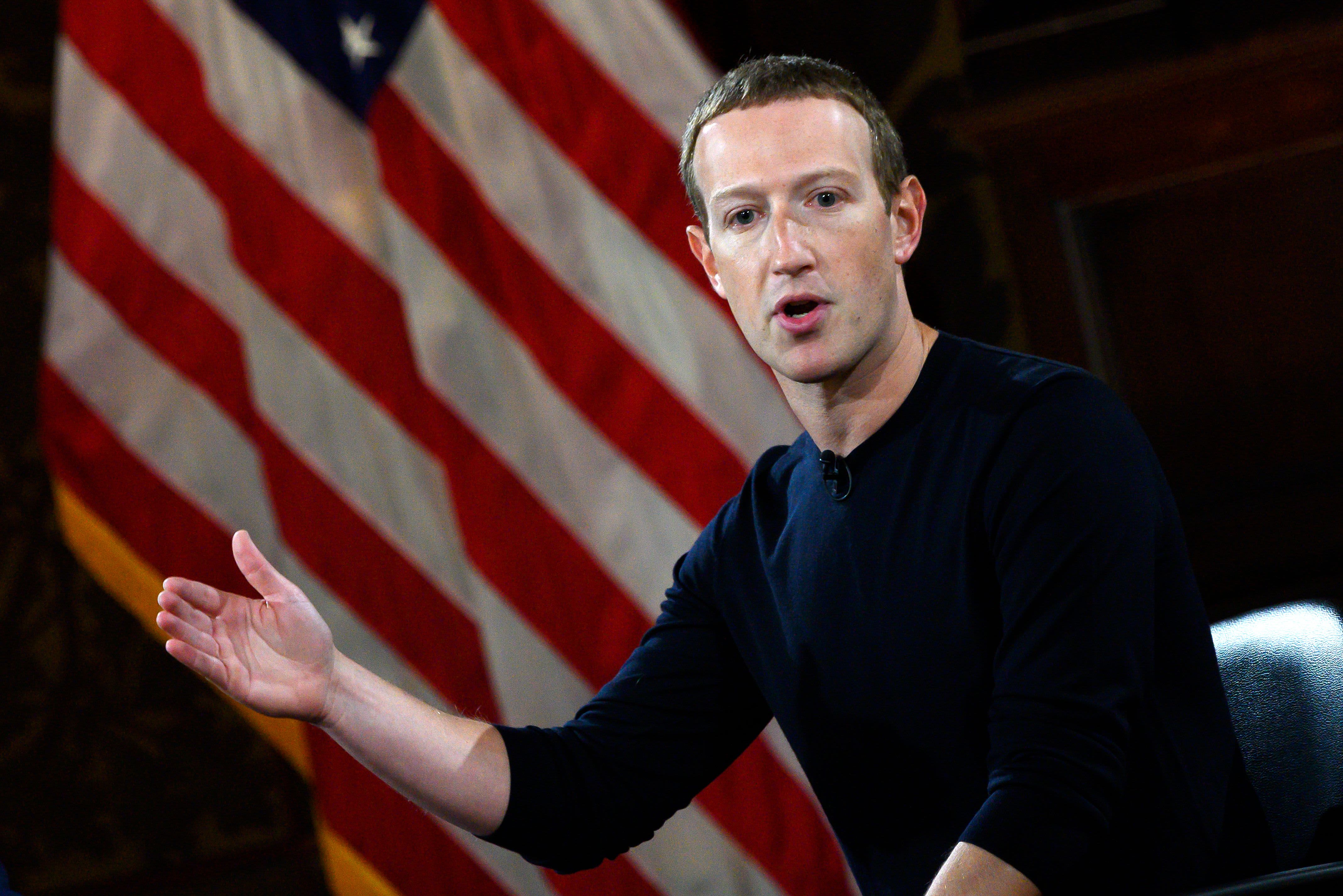Facebook founder Mark Zuckerberg speaks at Georgetown University in a ‘Conversation on Free Expression” in Washington, DC on October 17, 2019.
Andrew Caballero-Reynolds | AFP | Getty Images
Facebook on Friday offered a rebuttal to the hit Netflix documentary-drama, “The Social Dilemma.”
The movie revealed, perhaps for the first time to some viewers, how social networks use algorithms to keep people coming back. It also addressed how tech companies have influenced elections, ethnic violence and rates of depression and suicide. Some viewers said they were deleting Facebook and Instagram after watching it.
The rebuttal suggests that Facebook may be worried that the documentary’s effects on usage. “The Social Dilemma” appeared in Netflix’s top ten most popular movies and TV shows list in September and is still listed in its Trending section.
In a post published on its site, Facebook addressed several concerns it has with the movie, covering topics like addiction, users being “the product,” its algorithms, data privacy, polarization, elections and misinformation.
“Rather than offer a nuanced look at technology, it gives a distorted view of how social media platforms work to create a convenient scapegoat for what are difficult and complex societal problems,” Facebook said.
It said the documentary sensationalizes social networks and provides a distorted view to how they work.
It argued, for example, that its algorithms keep the things users see “relevant and useful” the same way that Netflix, dating apps, Amazon and Uber do.
However, one issued raised in the movie is that Facebook’s algorithms learn more specific things about users, like their preferred political party, and shows them news it think they will agree with. That problem doesn’t happen on the services Facebook compares itself to. The movie suggested social networks ought to show viewers a mix of opinions to offer more balance.
Facebook also argued that its product teams aren’t driven to build features to increase the amount of time people using its services. It said that it made changes in 2018 that decreased usage by 50 million hours a day.
Still, in every earnings call, Facebook highlights the metric of “daily active users” (DAU), which have increased steadily year after year. Those users are how Facebook makes money. Facebook needs them to keep coming back, whether it’s frequent or not. More than 1.79 billion people use Facebook every day, according to its Q2 2020 earnings, and 2.7 billion people use it every month. Facebook even provides a metric for how much those users are worth: the average revenue per user in Q2 2020 was $7.05.
“We’ve acknowledged that we made mistakes in 2016,” Facebook’s post says, referring to Russian meddling in the 2016 election through platforms like Facebook. Facebook has made several steps it says will secure the integrity of the election, like banning new ads the week prior to the election and those that seek to delegitimize it.
“The idea that we allow misinformation to fester on our platform, or that we somehow benefit from this content, is wrong,” Facebook said Friday, arguing against suggestions in “The Social Dilemma” that it spreads fake news, hate speech and misinformation. Facebook said it has more than 70 fact-checking partners and that it has removed over 22 million pieces of hate speech. Still, misinformation has proven to be a game of whack-a-mole for Facebook, which consistently needs to find and remove it.
